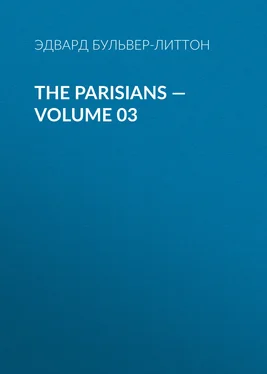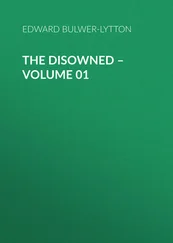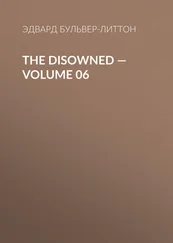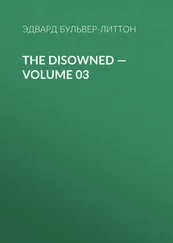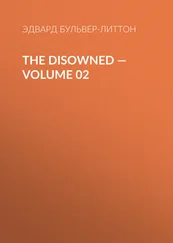Эдвард Бульвер-Литтон - The Parisians — Volume 03
Здесь есть возможность читать онлайн «Эдвард Бульвер-Литтон - The Parisians — Volume 03» — ознакомительный отрывок электронной книги совершенно бесплатно, а после прочтения отрывка купить полную версию. В некоторых случаях можно слушать аудио, скачать через торрент в формате fb2 и присутствует краткое содержание. Жанр: foreign_prose, literature_19, Европейская старинная литература, foreign_antique, на английском языке. Описание произведения, (предисловие) а так же отзывы посетителей доступны на портале библиотеки ЛибКат.
- Название:The Parisians — Volume 03
- Автор:
- Жанр:
- Год:неизвестен
- ISBN:нет данных
- Рейтинг книги:5 / 5. Голосов: 1
-
Избранное:Добавить в избранное
- Отзывы:
-
Ваша оценка:
- 100
- 1
- 2
- 3
- 4
- 5
The Parisians — Volume 03: краткое содержание, описание и аннотация
Предлагаем к чтению аннотацию, описание, краткое содержание или предисловие (зависит от того, что написал сам автор книги «The Parisians — Volume 03»). Если вы не нашли необходимую информацию о книге — напишите в комментариях, мы постараемся отыскать её.
The Parisians — Volume 03 — читать онлайн ознакомительный отрывок
Ниже представлен текст книги, разбитый по страницам. Система сохранения места последней прочитанной страницы, позволяет с удобством читать онлайн бесплатно книгу «The Parisians — Volume 03», без необходимости каждый раз заново искать на чём Вы остановились. Поставьте закладку, и сможете в любой момент перейти на страницу, на которой закончили чтение.
Интервал:
Закладка:
Edward Bulwer-Lytton
The Parisians — Volume 03
BOOK III
CHAPTER I
The next day the guests at the Morleys' had assembled when Vane entered. His apology for unpunctuality was cut short by the lively hostess. "Your pardon is granted without the humiliation of asking for it; we know that the characteristic of the English is always to be a little behindhand."
She then proceeded to introduce him to the American Minister, to a distinguished American poet, with a countenance striking for mingled sweetness and power, and one or two other of her countrymen sojourning at Paris; and this ceremony over, dinner was announced, and she bade Graham offer his arm to Mademoiselle Cicogna.
"Have you ever visited the United States, Mademoiselle?" asked Vane, as they seated themselves at the table.
"No."
"It is a voyage you are sure to make soon."
"Why so?"
"Because report says you will create a great sensation at the very commencement of your career; and the New World is ever eager to welcome each celebrity that is achieved in the Old,—more especially that which belongs to your enchanting art."
"True, sir," said an American senator, solemnly striking into the conversation; "we are an appreciative people; and if that lady be as fine a singer as I am told, she might command any amount of dollars."
Isaura coloured, and turning to Graham, asked him in a low voice if he were fond of music.
"I ought of course to say 'yes,' answered Graham, in the same tone; "but I doubt if that 'yes' would be an honest one. In some moods, music—if a kind of music I like—affects me very deeply; in other moods, not at all. And I cannot bear much at a time. A concert wearies me shamefully; even an opera always seems to me a great deal too long. But I ought to add that I am no judge of music; that music was never admitted into my education; and, between ourselves, I doubt if there be one Englishman in five hundred who would care for opera or concert if it were not the fashion to say he did. Does my frankness revolt you?"
"On the contrary, I sometimes doubt, especially of late, if I am fond of music myself."
"Signorina,—pardon me,—it is impossible that you should not be. Genius can never be untrue to itself, and must love that in which it excels, that by which it communicates joy, and," he added, with a half-suppressed sigh, "attains to glory."
"Genius is a divine word, and not to be applied to a singer," said Isaura, with a humility in which there was an earnest sadness.
Graham was touched and startled; but before he could answer, the American Minister appealed to him across the table, asking if he had quoted accurately a passage in a speech by Graham's distinguished father, in regard to the share which England ought to take in the political affairs of Europe.
The conversation now became general, very political and very serious. Graham was drawn into it, and grew animated and eloquent.
Isaura listened to him with admiration. She was struck by what seemed to her a nobleness of sentiment which elevated his theme above the level of commonplace polemics. She was pleased to notice, in the attentive silence of his intelligent listeners, that they shared the effect produced on herself. In fact, Graham Vane was a born orator, and his studies had been those of a political thinker. In common talk he was but the accomplished man of the world, easy and frank and genial, with a touch of good-natured sarcasm; but when the subject started drew him upward to those heights in which politics become the science of humanity, he seemed a changed being. His cheek glowed, his eye brightened, his voice mellowed into richer tones, his language be came unconsciously adorned. In such moments there might scarcely be an audience, even differing from him in opinion, which would not have acknowledged his spell.
When the party adjourned to the salon, Isaura said softly to Graham, "I understand why you did not cultivate music; and I think, too, that I can now understand what effects the human voice can produce on human minds without recurring to the art of song."
"Ah," said Graham, with a pleased smile, "do not make me ashamed of my former rudeness by the revenge of compliment; and, above all, do not disparage your own art by supposing that any prose effect of voice in its utterance of mind can interpret that which music alone can express, even to listeners so uncultured as myself. Am I not told truly by musical composers, when I ask them to explain in words what they say in their music, that such explanation is impossible, that music has a language of its own untranslatable by words?"
"Yes," said Isaura, with thoughtful brow but brightening eyes, "you are told truly. It was only the other day that I was pondering over that truth."
"But what recesses of mind, of heart, of soul, this untranslatable language penetrates and brightens up! How incomplete the grand nature of man—though man the grandest—would be, if you struck out of his reason the comprehension of poetry, music, and religion! In each are reached and are sounded deeps in his reason otherwise concealed from himself. History, knowledge, science, stop at the point in which mystery begins. There they meet with the world of shadow. Not an inch of that world can they penetrate without the aid of poetry and religion, two necessities of intellectual man much more nearly allied than the votaries of the practical and the positive suppose. To the aid and elevation of both those necessities comes in music, and there has never existed a religion in the world which has not demanded music as its ally. If, as I said frankly, it is only in certain moods of my mind that I enjoy music, it is only because in certain moods of my mind I am capable of quitting the guidance of prosaic reason for the world of shadow; that I am so susceptible as at every hour, were my nature perfect, I should be to the mysterious influences of poetry and religion. Do you understand what I wish to express?"
"Yes, I do, and clearly."
"Then, Signorina, you are forbidden to undervalue the gift of song. You must feel its power over the heart, when you enter the opera-house; over the soul, when you kneel in a cathedral."
"Oh," cried Isaura, with enthusiasm, a rich glow mantling over her lovely face, "how I thank you! Is it you who say you do not love music? How much better you understand it than I did till this moment!"
Here Mrs. Morley, joined by the American poet, came to the corner in which the Englishman and the singer had niched themselves. The poet began to talk, the other guests gathered round, and every one listened reverentially till the party broke up. Colonel Morley handed Isaura to her carriage; the she-mountebank again fell to the lot of Graham.
"Signor," said she, as he respectfully placed her shawl round her scarlet-and-gilt jacket, "are we so far from Paris that you cannot spare the time to call? My child does not sing in public, but at home you can hear her. It is not every woman's voice that is sweetest at home."
Graham bowed, and said he would call on the morrow. Isaura mused in silent delight over the words which had so extolled the art of the singer. Alas, poor child! she could not guess that in those words, reconciling her to the profession of the stage, the speaker was pleading against his own heart.
There was in Graham's nature, as I think it commonly is in that of most true orators, a wonderful degree of intellectual conscience which impelled him to acknowledge the benignant influences of song, and to set before the young singer the noblest incentives to the profession to which he deemed her assuredly destined; but in so doing he must have felt that he was widening the gulf between her life and his own. Perhaps he wished to widen it in proportion as he dreaded to listen to any voice in his heart which asked if the gulf might not be overleapt.
Читать дальшеИнтервал:
Закладка:
Похожие книги на «The Parisians — Volume 03»
Представляем Вашему вниманию похожие книги на «The Parisians — Volume 03» списком для выбора. Мы отобрали схожую по названию и смыслу литературу в надежде предоставить читателям больше вариантов отыскать новые, интересные, ещё непрочитанные произведения.
Обсуждение, отзывы о книге «The Parisians — Volume 03» и просто собственные мнения читателей. Оставьте ваши комментарии, напишите, что Вы думаете о произведении, его смысле или главных героях. Укажите что конкретно понравилось, а что нет, и почему Вы так считаете.
